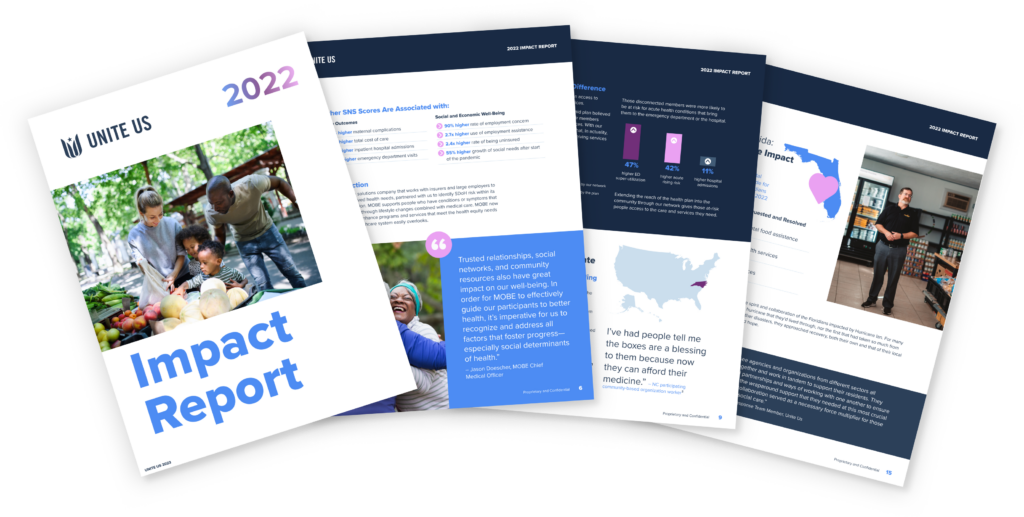Making the Difference: Programs Addressing Behavioral Health Challenges
Behavioral Health Series #3
Making the Difference – Programs Addressing Behavioral Health Challenges
Three programs that are integrating behavioral health into medical services for low-income populations
With so many low-income and Medicaid recipients living with behavioral health issues, such as mental illness and substance misuse, it is imperative that physical and behavioral health services become integrated. Three programs are taking on that task, by developing systems to treat the whole person in a more comprehensive manner, allowing healthcare providers and community providers to reduce avoidable hospital use, reduce the cost of care, and increase the health of a multitude of individuals and families in the country.
While other programs are in the works in the U.S., we selected three distinct programs to spotlight in this article: New York State’s DSRIP program; The National Council for Behavioral Health’s Certified Community Behavioral Health Clinics; and New York State’s Behavioral Health Value-Based Payment Readiness Program.
Delivery System Reform Initiative Payment (DSRIP) Program
With the goal of reducing avoidable emergency and inpatient hospital use by 25 percent over five years, the DSRIP program is set to transform New York’s healthcare system, by focusing on high quality, integrated primary, specialty, and behavioral health care in the community. Because a disproportionate amount of annual total cost of care and hospital visits in New York State can be attributed to the behavioral health population, the DSRIP program will benefit Medicaid members most.
The program sets up 25 Performing Provider Systems (PPSs) throughout the state of New York that includes providers from the entire continuum of care. Each PPS includes hospitals, health departments, health homes, social service departments and local government units, behavioral health provider, skilled nursing facilities, clinics and federally qualified health centers, home care agencies, physicians/practitioners, and other key stakeholders.
Each PPS can select the model of integration they prefer:
- Behavioral health integrating into a primary care site;
- Primary care integrating into a behavioral health site; or
- IMPACT model of collaborative care for depression (IMPACT stands for Improving Mood – Promoting Access to Collaborative Treatment for late-life depression)
Once established, the patient’s care will be transformed in many ways, including these:
| Today’s care | Care in DSRIP program |
| PCP sees person and refers for behavioral health care | Member sees PCP at the same place and on the same day as behavioral health practitioner |
| Care is delivered around acute illness, in-patient hospital stays, and ER visits | Annual exams, medical and preventive care shift the focus to wellness for Medicaid members in their communities |
| Care is directed by a single practitioner (PCP) | Care is coordinated by a multidisciplinary team, each member working to the full extent of his or her scope of practice |
How is it working so far?
As part of the program, the Medicaid Accelerated Exchange FQHC Action team identified 50 patients that were considered “super-utilizers”, with 3195 emergency room visits and 270 in-patient admissions. They discovered that many of these people were homeless and presented vague complaints, but only really wanted or needed food and shelter. The team trained security staff to help connect those patients with housing and worked with BronxWorks to shuttle patients from the emergency department to a 24-hour drop-in center. Initial results show a 36 percent reduction in emergency department visits and an especially significant 90 percent reduction in visits by three patients, estimated to prevent 124 visits by themselves.
Interested in learning more about how Unite Us supports the New York State DSRIP Program? Check out our partnerships with Adirondack Health Institute (AHI) and Alliance for Better Health!
Certified Community Behavioral Health Clinics (CCBHC)
CCBHCs were created through Section 223 of the Protecting Access to Medicare Act, which established a program based on the Excellence in Mental Health Act, which is a two-year, eight-state initiative to expand Americans’ access to mental health and addiction care in community-based settings.
Each CCBHC provides a collection of specific services to stabilize people in crisis, provide necessary treatment for those with serious, complex, mental illnesses and substance abuse disorders, and emphasizes recovery, wellness, trauma-informed care and physical-behavioral health integration. Comprehensive care may include 24-hour crisis services, immediate screening and risk assessment, easy access to care with reduced wait time for those who need services most, and tailored care for active duty military and veterans. It also includes expanded care coordination with health care and social service providers as well as law enforcement, and a commitment to recognizing that peers and family need to be included too.
The CCBHCs will provide care regardless of the patient’s ability to pay, will care for the underserved and low-income populations and those insured, uninsured, or on Medicaid.
To help CCBHCs finance shortfalls, the government pays them a Medicaid rate that is inclusive of their anticipated costs and includes expanded service lines and serving new consumers.
How is it working so far?
According to the National Council for Behavioral Health, “Survey results confirm that when community behavioral health clinics are incentivized to provide evidence-based care and provided compensation that adequately covers their cost of doing business, they can transform access to care in their communities.”
In this stage of the program, the eight states that are participating include Minnesota, Missouri, New Jersey, New York, Oklahoma, Oregon, and Pennsylvania. However, the National Council is committed to expanding the program to all interested states in the future.
Behavioral Health Value-Based Payment Readiness Program
This program is designed to transform New York State’s health care delivery system by establishing Behavioral Health Care Collaboratives (BHCC), which will invest in infrastructure to improve health outcomes, manage costs, and participate in value-based payment arrangements over a three-year period.
Each BHCC will include a lead agency, network providers, and affiliated providers, and will develop standards for each provider who wants to participate in the BHCC. Their main goal is to provide a plan to address gaps in the continuum of care by:
- Identifying the number of Medicaid Managed Care service recipients within each BHCC area
- Identifying historic and ongoing services utilization trends by physical health service and behavioral health service use, use of medication-assisted treatment for substance use disorders, social determinants of health, and the use of home and community-based services
- Assessing the needs of the community
- Assessing the IT capabilities of the network providers
- Specifying how funds will be used to move to a shared IT platform on which providers can monitor and implement care planning and collaborate
In the end, the program will develop uniform clinical protocols and standards among BHCC providers to coordinate and connect patients to the next level of care and integrate care between medical and physical health providers, mental health and substance use disorder treatment providers, and agencies addressing the social determinants of health.
Still, in its early stages, BHCCs will be a driving force in helping Medicaid recipients, low-income populations, and others in need of behavioral health treatment.
Learn More About How Unite Us is Integrating Behavioral Healthcare
The growing need to address behavioral health needs in America requires support from all sectors. The common thread between the programs mentioned is the focus on integrating behavioral, social, and clinical care.Unite Us helps systems and communities efficiently deliver care and services by inter-connecting providers around every patient, seamlessly integrating the social determinants of health into patient care.
For more information on how Unite Us does this please fill out your information here and a member of our network development team with reach out shortly.
About Unite Us
Unite Us is the nation’s leading software company bringing sectors together to improve the health and well-being of communities. We drive the collaboration to predict, deliver, and pay for services that impact whole-person health. Through Unite Us’ national network and software, community-based organizations, government agencies, and healthcare organizations are all connected to better collaborate to meet the needs of the individuals in their communities.



